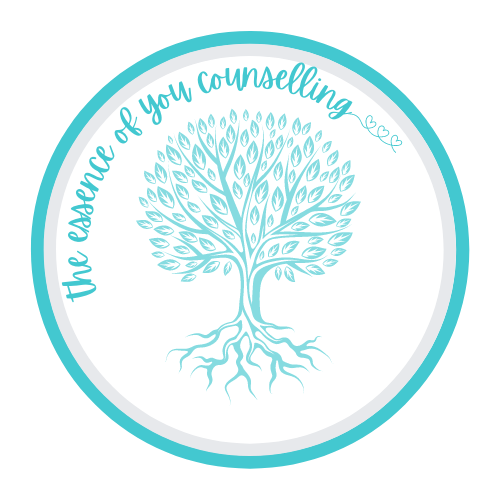When Your Emotions Take Over & You Feel Out of Control
Do you ever catch yourself subconsciously attempting to think your way out of feeling? Getting caught up in brainstorming, problem-solving, detective-working, or simply just overthinking when you’re going through a difficult experience?
This has been a common theme in my individual therapy sessions lately and I thought it deserved some space for further reflection here. There are a lot of emotions that we go through that are extremely uncomfortable. And, most of us have not grown up being taught how to deal with these uncomfortable emotions. This is one of the reasons why I have a job! What were you role-modelled growing up? What were you taught? Think of direct and indirect learning that you experienced around emotions as you were a child, and how you have brought this into your adult life.
“Just don’t think about it.” “Don’t dwell on it.” “Think happy thoughts” “Get over it.”
“Move on.” “Think about something else.” “Just be happy for what you do have.”
“It could have been worse.” “Why is this happening?” “What did I do wrong?”
“How can you stop this from happening again?” “What should you have/do you need to do differently?”
What else comes to mind when you consider your default ways of coping with tough emotions? Ideally, we would all be able to notice, feel, process, accept and release our emotions, so that they don’t stay stuck and manifest into dysfunctional coping strategies.
When we get caught up in trying to think our way out of feeling, we inevitably shut down the emotional part of ourselves that was triggered in the first place. The rational, intellectual part of ourselves swoops in to protect us from emotions that might seem unmanageable. But when we ignore, suppress, shut down, dismiss or distract ourselves from our emotions, they don’t go away… And if it might feel like you do get relief, trust me - it’s only temporary. These unprocessed, unexpressed, unfelt emotions stay stuck and they will do whatever it takes to get heard. Our emotions are wise internal messengers! We need to listen to them. It’s when we DON’T listen, that they fight to get heard and attempt to take over. When we DO listen, validate, and do whatever it takes to understand these different emotional parts of ourselves, we can meet the needs of these varying parts of ourselves and live authentically in a functional manner.
An example I often give to my clients is this:
Imagine your emotions as small children. You’re driving down the highway and all of a sudden, Fear starts asking for attention. You ignore her, or maybe tell her to be quiet, tell her she has nothing to worry about. Maybe you try to rationalize with her, explain why there’s nothing to fear. Maybe you ignore her and just get caught up in your thoughts, wondering why she has showed up yet again. Maybe you turn up the music or try to distract her. She quiets down for a moment but then gets louder and louder until all of a sudden, you realize you are no longer in the drivers seat.
Fear has taken over completely and she is now driving. What do you need to do? You need to get back into the drivers seat of course, and safely put your child (the fear) back into her carseat where she is safe. But how will you do this if she has already taken over the steering wheel? Before you read on, I want to encourage you to consider how you would gently handle this with an actual small child!
Perhaps you would slowly bring yourself back up to the front, calmly place your hand on the wheel and tell her you are offering her support. You’re here, you’re listening now. You are sorry that you didn’t listen before when she told you she was scared. You see now that she felt like she had to get in control in order to feel safe, because you didn’t help her to feel safe when you unintentionally shut her down before. You are here to take care of her now. “Let’s pull over and take some time to chat. I want to hear you, I want to understand you, I want to make you feel safe with me here. I want you to tell me whatever you need me to understand. I want you to show me whatever you need me to see. I’m ready now, there is no rush.” So she (the fear) softens. She lets you take the wheel and slip back into the drivers seat. You safely pull over, and find a spot where you can give her your undivided attention. She softens even more, and cuddles into your lap, just like a small child would. After all, this is how she feels - like a small child that needs nurturing. She is very likely a triggered part of you that developed when you were growing up, and what she needs now is to be cared for by YOU. Your authentic, present, functional adult self can now step into the role of re-parenting this inner-child that needs so desperately to be heard and understood. After you’ve taken the time to do this, you ask Fear if she is ready to go now. Ask her if there is anything else she needs from you in order to feel safe. You make a plan together, and let her know that she can speak up again if she starts to feel uneasy. Then you buckle her up into her carseat and you calmly step back into the drivers seat, and carry on. Burdens released.
When you take the time to listen, to really listen, and understand the triggered parts within you that carry such big, heavy, uncomfortable emotions, they soften and release. It is inevitable. The focus of many of my workshops is on this exact theme of taking the time to understand the different parts of you, the different emotions, and allow yourself to feel how you feel and be who you are. This is what can set you free from so many burdens and allow you to live more authentically within your value system.
JEN REDDISH FROM THE ESSENCE OF YOU IS A REGISTERED MASTER THERAPEUTIC COUNSELLOR IN CALGARY, ALBERTA. JEN HOLDS WORKSHOPS, RETREATS, GROUPS & INDIVIDUAL THERAPY SESSIONS ON TOPICS PERTAINING TO MOTHERHOOD, BODY IMAGE, & THE PERI-NATAL PERIOD.
Need More Support?
Check out our featured workshop this month to help you with managing stress, fear, anxiety & to help you to come back to feelings of calm, safety & regulation within your body.
RELEASING ANXIETY & FINDING YOUR CALM
This Anxiety Workshop Bundle includes 3 essential workshops to support you with managing your anxiety both in-the-moment and in the long term in a way that will help you to feel empowered.
Gain insight around your anxiety, it’s purpose, and differentiate between when it is a useful tool to listen to and when it is unhelpful and needs to be released. You will learn ways to manage your symptoms of anxiety in both the short term and the LONG TERM!
This workshop bundle is available online in a self-paced format with indefinite access. November Offer: Sign up by November 30th & you’ll get 20% Off PLUS access to Jen’s live online discussion with Q&A’s on Nov 30th. Use coupon code 20off when you sign up HERE.
Upcoming Live Groups & Workshops with Jen





![Re-Connecting to Your Intuition [Online Workshop]](https://images.squarespace-cdn.com/content/v1/62cc787c38f380259f5c91a0/1741971365489-L0I7ZSOHPWV7DF18S9KI/TheEssenceofYou57.jpg)


